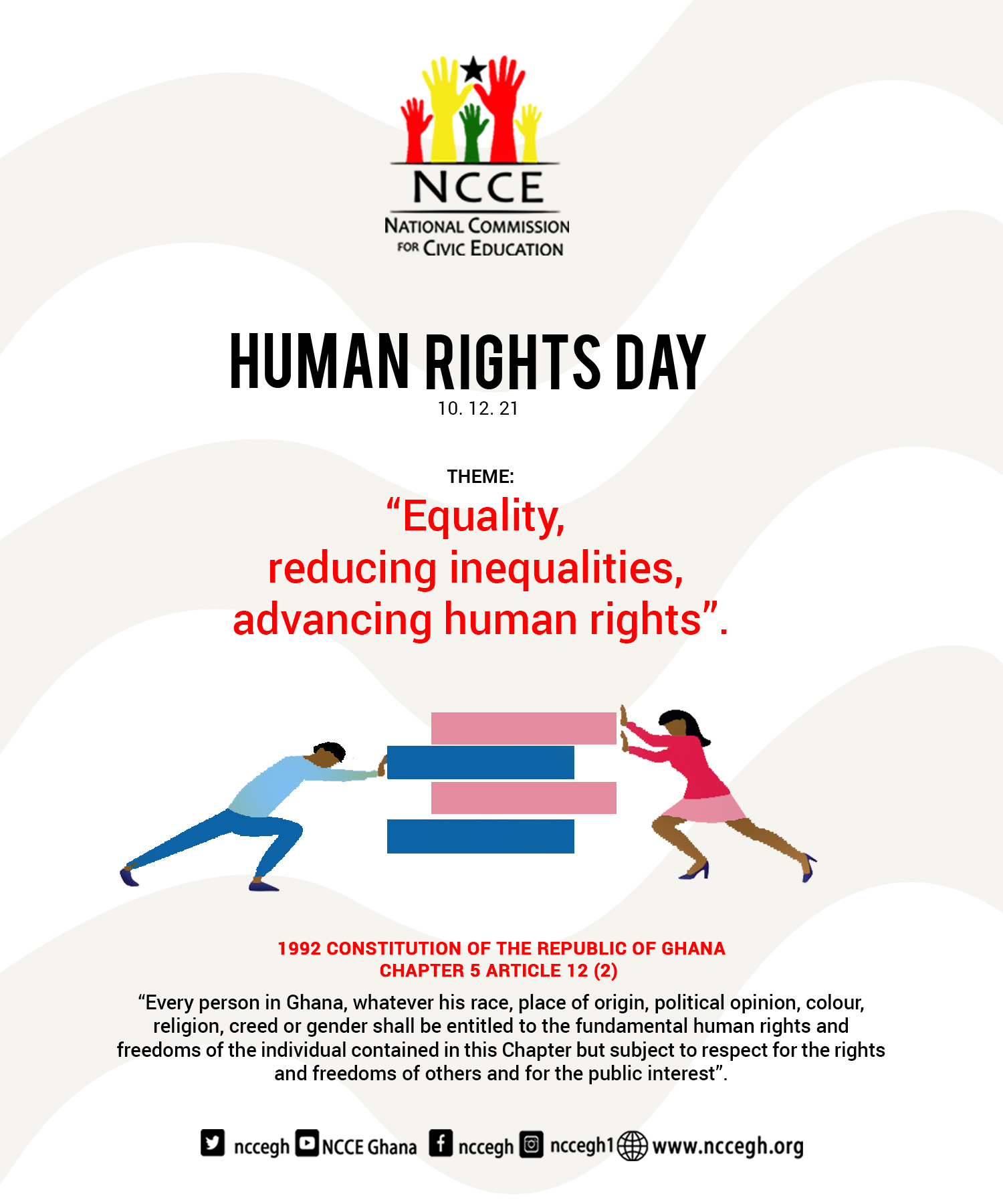The National Commission for Civic Education (NCCE), today, is commemorating World Human Rights Day observed every 10th December. This year’s World Human Rights Day is dubbed “Equality, reducing inequalities, advancing human rights”.
The principles of equality are deeply embedded in Human rights. It is not surprising that the first article in the Universal Declaration of Human Rights (UDHR) states that “All human beings are born free and equal in dignity and rights”. In alignment with United Nations 2030 agenda, it seeks to “leave no one behind”, and addresses the need to curb all forms of deep-rooted discrimination, which includes religious, tribal, and political discrimination, as well as classism that has physically and emotionally affected the vulnerable in society including women and children, persons with disability (PWDs) and immigrants.
According to a 2012 United Nations report on the causes of inequalities in Ghana, it was discovered that poor state of rural infrastructure, rural livelihoods, youth unemployment, limited access to quality education and high child labor are all key drivers of rural poverty and, by extension, the drivers of inequalities. It is women, children and persons with disability who end up being the most affected parties. During the COVID-19 pandemic, PWDs, women, children and the youth suffered many consequences and challenges especially from physical abuse, emotional abuse, depression and loss of jobs and livelihoods. Many received limited attention from Government in its roll-out plan and incentives provided for citizens. Thus, the NCCE with support from the United Nations Development Programme (UNDP) implemented a green recovery project to equip vulnerable groups and help them get back on their feet during the pandemic.
Chapter 5, Article 12 of the 1992 Constitution of Ghana states that “Every person in Ghana, whatever his race, place of origin, political opinion, color, religion, creed or gender shall be entitled to the fundamental human rights and freedoms of the individual contained in this Chapter but subject to respect for the rights and freedoms of others and for the public interest”. The Commission strongly believes and encourages that every citizen should have access to equal opportunities regardless of their gender, race, religion or disability. This will ensure the elimination of unfair bias that tends to unfairly ruin chances.
Public and private officers, people in authority, traditional authorities and every citizen in Ghana ought to treat everyone equally. Buildings which are not disability friendly ought to amend structures to accommodate the physically challenged. In school admission processes and job search, all persons ought to be treated fairly. None must be left behind if we seek to advance our democracy.
Giving people equal opportunities regardless of their disability, social, political, tribal, or religious background, refraining from nepotism among others will boast equality in various sectors of the economy. Equal pay, equal societal rights and privileges will go a long way in drastically reducing inequality in our nation, especially during the COVID-19 pandemic.



Leave a comment